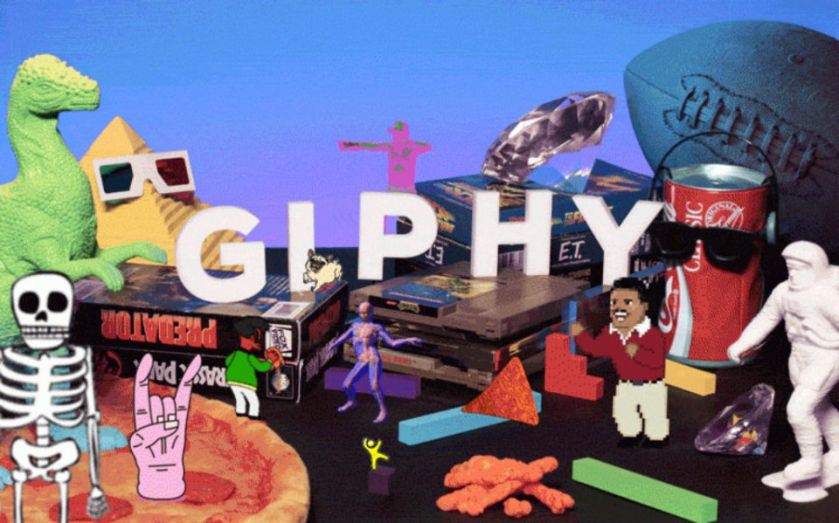Screenshot: Can the City harness the power of the Netflix model?

This week
**Media Moment of the Week: Victoria Derbyshire’s heels hiccup
**Can the City harness the power of the Netflix model?
**The CMA goes for GIFs
Media Moment of the Week: Victoria Derbyshire’s heels hiccup
Late on Wednesday evening prolific BBC presenter Victoria Derbyshire tweeted to say she’d be on air three times in a single day. At 9am the next day this happened (complete with audible “Oh my God”):
For God’s sake, someone let Victoria have a holiday.
Can the City harness the power of the Netflix model?
Let’s face it, of all the possible players to enter the ever-escalating streaming wars, Salesforce was probably not high on your list. Yet in a surprise move the US software behemoth this week officially weighed in with plans to launch a new streaming service devoted to business content.
We may not have seen it coming, but Salesforce Plus (as it’ll be imaginatively named) does make a lot of sense. Salesforce is a B2B powerhouse that holds a lot of sway in the corporate world. In many ways the new platform will be an on-demand version of Dreamforce — its annual conference in San Francisco that attracted 171,000 attendees in 2019. Building on this success and moving it online seems a savvy move, especially in light of the pandemic. And while the company has no immediate plans to monetise Salesforce Plus, it will no doubt have an eye on future advertising and sponsorship opportunities, as well as drumming up business for its own services.
But Salesforce isn’t alone. Last month FTSE education giant Pearson unveiled plans for a new college learning app for US students, dubbed Pearson Plus (at least it’s alliterative, I guess). This is just the first step in a new direct-to-consumer push spearheaded by boss Andy Bird, the former Disney executive who took the reins last year.
Bird, who led Disney’s move into streaming, has been upfront about his intention to harness the power of the Netflix model by offering content directly to consumers. According to the veteran media boss, Pearson Plus “looks and feels like the rich media experience students use to consume news, music and movies”. This, then, is Netflix or Disney for education.
Of course, the two ventures are not the same. For Salesforce, the move into streaming is essentially a massive content marketing campaign and, as a result, far more of a gamble. It remains to be seen just how much demand there is for on-demand business content (does anyone really like conferences that much?). Moreover, Salesforce Plus — which will develop programmes in its in-house studio — will no doubt require considerable sums of cash. Justifying this expenditure to shareholders will require some work.
For Pearson, the push to streaming is a more logical move. As students shift online for most parts of their social and entertainment needs, it makes sense that education should also go digital. But switching to streaming is not just a question of modernisation — it will also help Pearson recapture the crucial secondary market and win back revenue from parents and students who’ve traditionally shunned new textbooks in favour of cheaper second-hand copies.
Still, both Salesforce and Pearson are making bold moves to adapt the Netflix model for new corporate environments. In a world of on-demand content and subscription services, the only question now is who will be next?
The CMA goes for GIFs

In the next instalment of unlikely business scenarios, the UK competition watchdog is getting its (very earnest) teeth stuck into GIFs. While on the surface animated images may not seem like Big Tech’s biggest issue at the moment, Facebook’s planned $400m of Giphy is hardly a small deal. Now the Competition and Markets Authority is moving to block it.
In a bombshell statement yesterday the CMA said it had provisionally concluded that the deal would harm competition. It warned that Facebook could block other platforms’ access to GIFs or request more data in exchange, adding to its already considerable market power. The watchdog also highlighted Giphy’s pre-merger plans to expand into other countries including the UK — a move that would have boosted competition in the online advertising market.
If its preliminary findings are confirmed, the watchdog could force Facebook to unwind the merger and sell off Giphy.
Facetious GIF jokes aside, the intervention could be the CMA’s first successful attempt to block a Big Tech merger under its new, more aggressive approach. I’ve written previously about boss Andrea Coscelli’s vowed intent to use new post-Brexit powers to take on tech, and it seems this could be bearing fruit. The CMA also didn’t pass on the opportunity to stick the knife in on Facebook in its press release, referring repeatedly to the tech giant’s dominance in the social media and online advertising markets.
This, though, is new territory for the watchdog. As an overseas regulator, its effort to block a deal between two US companies is an unusual — and no doubt unwelcome — move. Facebook has already made its distaste clear, so the CMA could be gearing up for its first big fight.
The algorithm recommends
- Foreign asset sale latest: NortonLifeLock has confirmed it’s buying rival Avast in a deal that could value the British cyber firm at up to $8.6bn.
- The BBC is weighing up a sale of its iconic Elstree studios in a move that could lead to a major upheaval for Eastenders.
- The Reddit gold rush continues as the online messaging forum this week secured a valuation of $10bn following a fresh funding round.
Got a story? Drop me a line at james.warrington@cityam.com or on Twitter